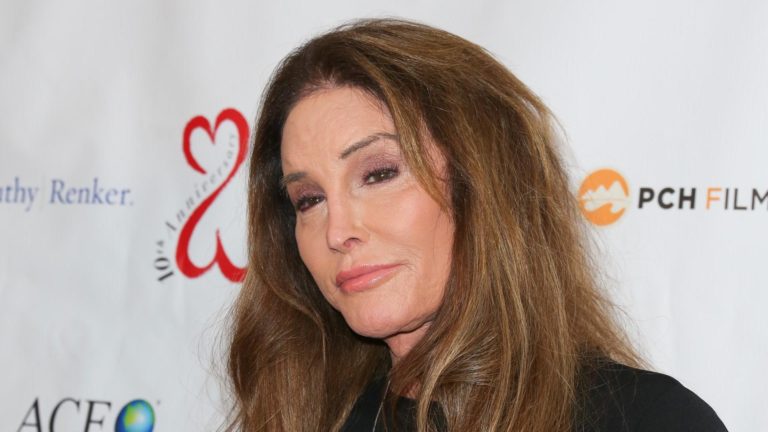

Refinery29
For Rosa Reveals The Ugly History Of Forced Sterilizations
“We’re still here,” Kathryn Boyd-Batstone, the filmmaker behind For Rosa, tells Refinery29, referencing our nation’s lack of progress when it comes to reproductive justice. Premiering May 1 on HBO, the short film follows the story of one Latina and her decision to become part of the Madrigal 10, a group of mothers who filed a class-action lawsuit against L.A. County-USC Medical Center in the 1970s, helping to define informed consent and stop the hospital’s eugenics-informed practice of forced sterilizations of women of color. Although For Rosa takes place some 50 years ago, forced sterilization is hardly a thing of the past. Last year, it was reported that ICE was performing mass hysterectomies on migrant women at one of its Georgia detention centers. The year before, Indigenous women in Canada joined together to sue the country’s national health system, citing documented cases of sterilization occurring up until as recently as 2018. In California, 1,400 women, most of them Black, were forcibly sterilized in prisons between 1997 and 2014. Puerto Rico is still dealing with the legacy of mass sterilizations and the continued disparities around reproductive justice. Whether forced sterilizations are happening in California, Canada, the Czech Republic, or China, they represent a kind of genocide, a way to kill a people quietly while pretending to offer patients medical care. For Rosa brings this heartbreaking reality to life. The film takes us back to what happened in Los Angeles when doctors performed tubal litigations on Latinas, specifically mothers undergoing emergency C-sections, targeting them because of their vulnerability and the fact that they were already getting surgery. Sometimes doctors performed these sterilizations without the patient’s knowledge or consent or after coercing women with tactics like withholding pain medication until the mothers-to-be gave their permission for the procedure. According to Boyd-Batstone, the hospital in question in the 1978 Madrigal v. Quilligan case had gotten a “$2 billion grant to help with family-planning and ‘help’ with the rates of Black and brown families in the area.” They did it using English-only forms and nurses with limited Spanish proficiency, pretending that was enough for women many of whom were in active labor to give informed consent. This was during a time in American history when fears of “welfare queens” taking too many resources, Latinas and other women of color having too many babies, and low-income women of color generally taking advantage of the system abounded among many white people. While the judge ruled in favor of the doctors, the Madrigal 10 helped to change laws and practices. The California Department of Health revised its sterilization guidelines, and the California State Legislature repealed the state’s sterilization law. This was only possible thanks to the efforts put forth by these courageous women. These 10 Latinas, who’d been sterilized without their consent, risked stigma, shame, and violence to come forward and testify. Their young, Latina attorney Antonia Hernández didn’t let age or lack of resources stop her from taking on this complicated, important case. “She was 26 when she started the case, having just graduated from UCLA, working her first job at the legal aid office,” says Boyd-Batstone. “They weren’t really giving her funding, and she had the conviction to go up against the court system and defend [and organize] these women who are all older than her and have children.” For Rosa focuses on the women’s decision to take action, despite the risks involved. The film’s heroine Eva, played by Melinna Bobadilla, is a young mother who’s looking forward to having a second kid and feels the pressure to live up to her community’s expectations to have a big family. The filmmakers also paid attention to the discrimination faced by Black and brown women, portraying how women with darker skin and more Afro- or Indigenous features were targeted. Boyd-Batstone, a white woman, says she and Bobadilla had “a lot of discussion” about racism. Bobadilla shared her personal experiences as a Xicana in Hollywood. It was important to both of them that For Rosa was not another “story centered around trauma [and] disparity,” says Boyd-Batstone. Instead, it’s a humanizing look at one woman’s strength and impact: “It doesn’t matter what your opinions on reproductive justice or racism [are]. You can connect with [Eva],” adds the filmmaker. This empathy is key to creating change. At the time, the Madrigal 10 was supported by a mass movement with rallies and protests, featuring Black and brown women on the posters, and magazine articles with titles like “Chicanos for Welfare.” Latinos were coming together to organize at a time in which society was criminalizing them. Together with a few whistleblowers at the hospital, this cross-racial group of plaintiffs, their attorney, activists, and organizers were able to make real change. They didn’t eradicate white fears about changing demographics or even win their court case, but they did make California change its system to better protect the rights of women of color. For Rosa ends before the court case begins, but Boyd-Batstone reveals she is working on a feature-length film to bring the story of the Madrigal 10 to even more people. As forced sterilizations continue and women’s sexual and reproductive health remains in jeopardy, we need to share these narratives of how individuals and communities came together and made real change. If we forget the history of the Madrigal 10, it’s at our own peril. Speaking about her granddaughter, one of the real-life Madrigal 10 women Consuelo Hermosillo told NPR, “I want her to have liberty in doing what she wants, going to school wherever she wants, [deciding] how many kids she wants.” It’s a simple wish, and one we are still failing to achieve for far too many women of color. Like what you see? How about some more R29 goodness, right here?